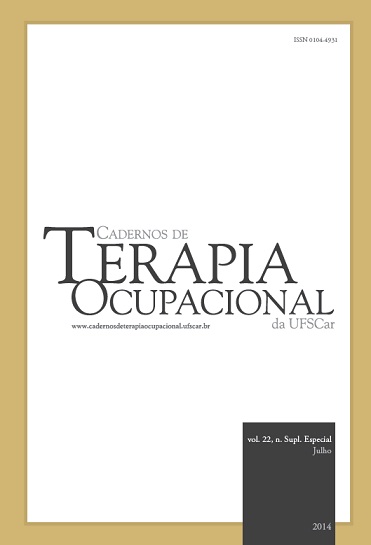Sensory processing disorders among substance dependents / Alterações no processamento sensorial entre dependentes químicos
DOI:
https://doi.org/10.4322/cto.2014.035Resumo
Purpose: (1) To compare sensory processing patterns as expressed in daily life between substance dependents and typical controls; (2) profile the prevalence of sensory processing disorders (SPD) among substance dependents; and (3) examine gender effect on SPD within and between groups. Methods: Two hundred ninety people aged 19-64 participated in this study. The study group included 145 individuals who lived in the community or took part in an outpatient program because of addiction to drugs/alcohol and had been clean for over three months. The control group included 145 individuals who were not exposed to drugs or alcohol on a regular basis and did not suffer from addictive behavior. All participants filled a demographic questionnaire. Those who met the inclusion criteria completed the Adolescent/Adult Sensory Profile (AASP) so that their sensory processing patterns could be assessed. Results: When comparing both groups, the study group showed greater sensory sensitivity and significantly higher prevalence of SPD. Significant group/gender interaction was found in regard to sensation seeking. Discussion: SPD among substance dependents may be expressed in daily life by either hypersensitivity or hyposensitivity. The behavioral outcomes reflected by the AASP support neurophysiological manifestations about SPD of substance dependents. The evaluation process of substance dependents should refer to their sensory processing abilities. In case SPD is diagnosed, Occupational Therapy and specific sensory–based interventions should be considered in order to fit the specific needs of individuals and enhance their performance, meaningful participation, and quality of life.


